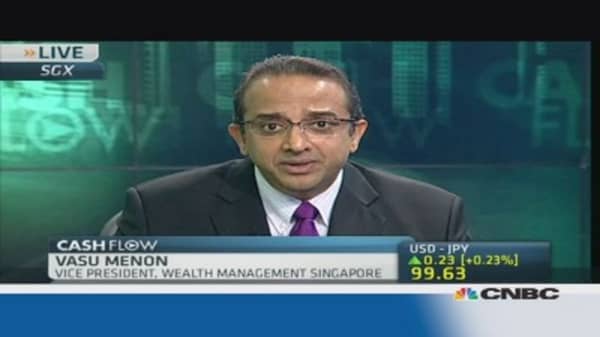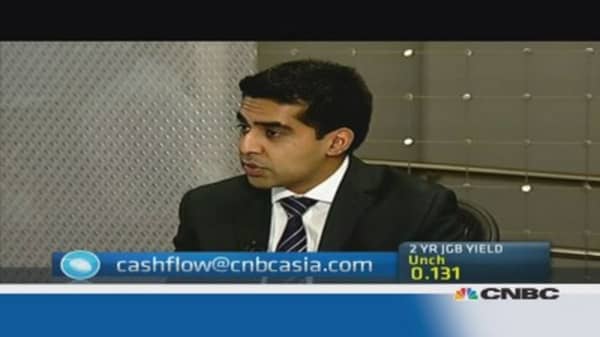Consumer prices rose 2.4 percent in the second-quarter from a year earlier, just below economist expectations for a 2.5 percent gain. The lower-than-expected figure increased the chances of an interest-rate cut at the Reserve Bank of Australia's (RBA) August meeting. Earlier this month, the RBA said that a diminishing inflation outlook would be a key factor in it's decision to ease policy.
"Since the rate cut in May this year, more and more dovish analysts have been crying foul that the RBA has started to jawbone again because inflation is stagnating and the non-mining economy is drowning," wrote Evan Lucas, market strategist at IG in a note.
Nikkei down 0.5%
Japanese stocks pulled back even as the yen weakened 0.3 percent to the 99 handle against the U.S. dollar. Tech exporters Sony and Panasonic fell 0.2 and 0.8 percent, respectively.
But Apple-related stocks received a boost following better-than-expected earnings from the Cupertino giant. Component makers Meiko Electronics and Foster Electric added 2 percent each while Murata Manufacturing added nearly 4 percent.
Also weighing on sentiment was weaker-than-expected June trade data. Exports rose for a fourth straight month in June, up 7.4 percent from a year earlier but missed market expectations for a 10.3 percent gain.
"The scene behind [the export data] could be partially explained by the fact that the share of USD settlement is so much more for import than export, meaning that yen's depreciation is a factor to contribute more to increasing import value than export," wrote analysts at Credit Agricole in a note.
(Read more: Here's when to get out of the Nikkei rally)
Kospi 0.4% higher
South Korea's benchmark index crossed the 1,905 level to hit a six-week peak as domestic exporters benefited from the yen's strength. Automaker Hyundai Motor added 0.7 percent.
Apple component suppliers also rose, with memory chip maker LG Display and display maker Samsung SDI higher by 2 percent each.
(Watch now: Apple is 'on the defense' in tech market)
The world's number two TV maker LG Electronics rose 2.3 percent after reporting a 9 percent fall in second-quarter profit due to weak sales. Shares rallied as the figure still exceeded market forecasts.
— By CNBC.com's Nyshka Chandran. Follow her on Twitter @NyshkaCNBC




